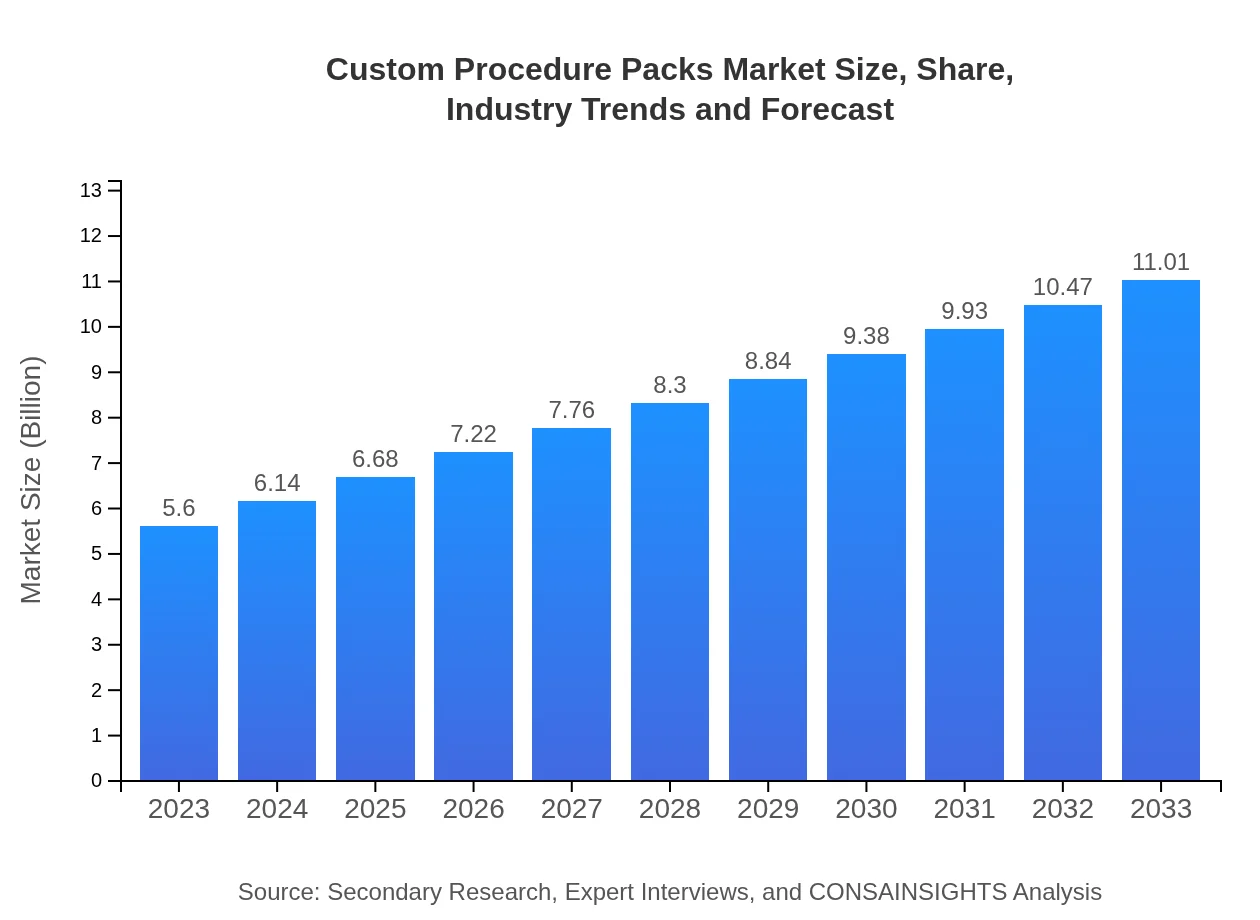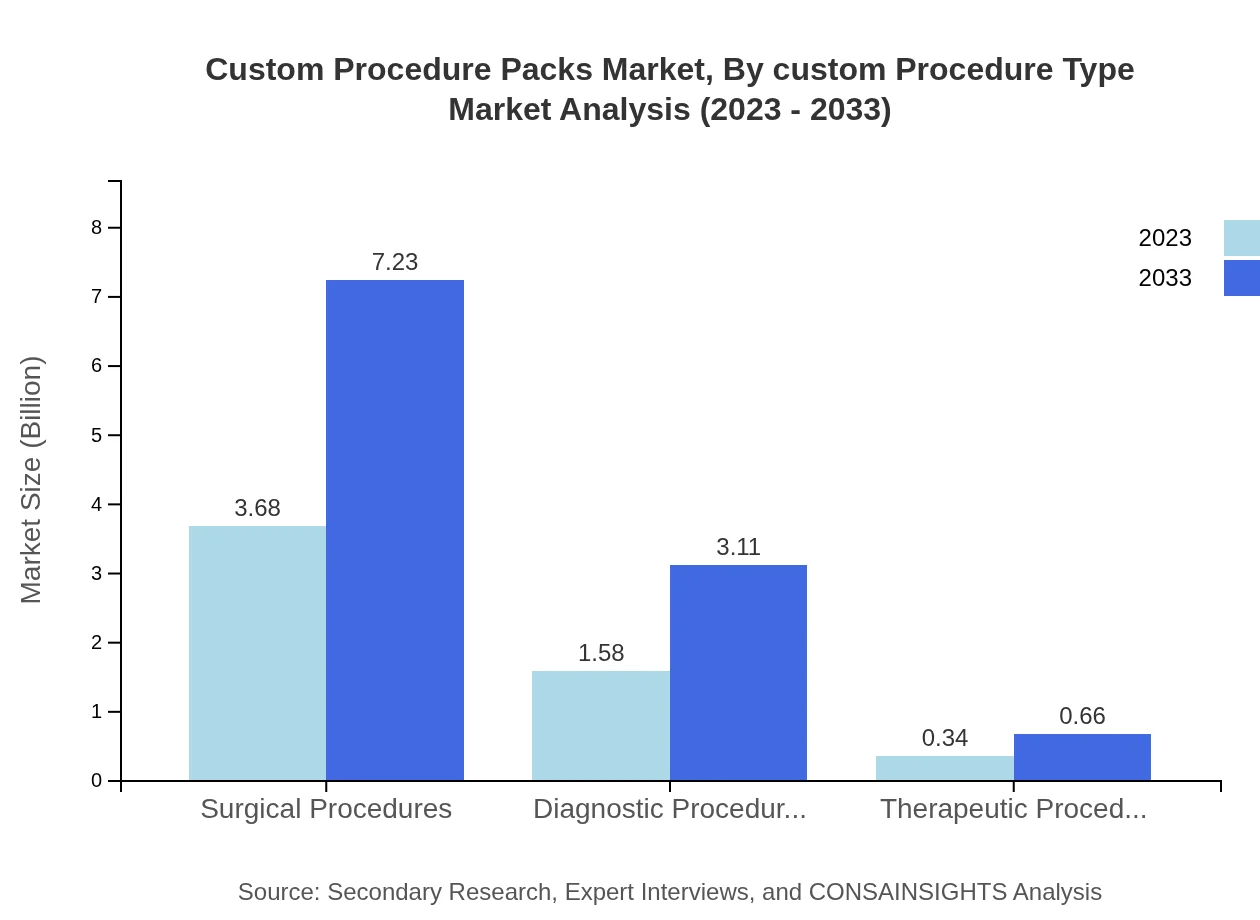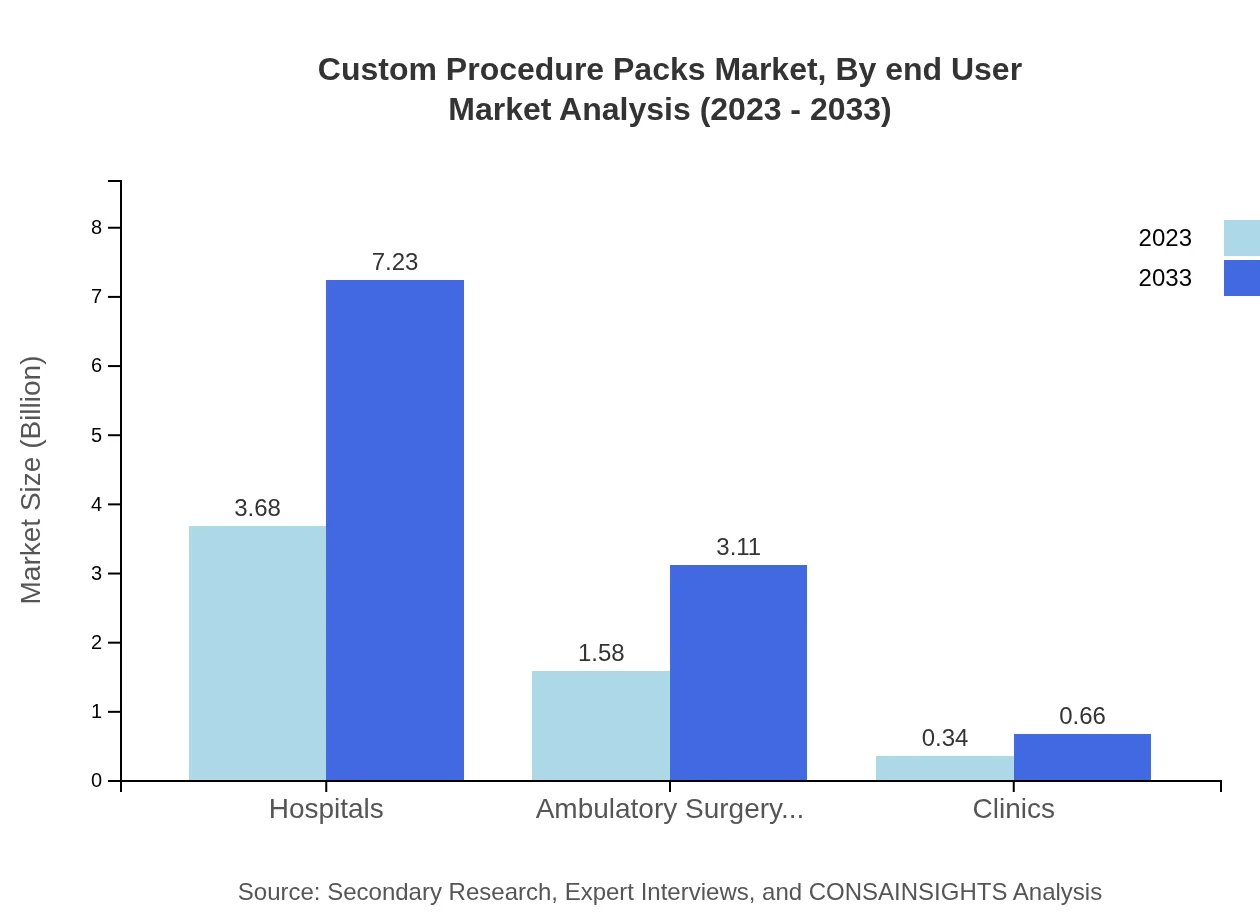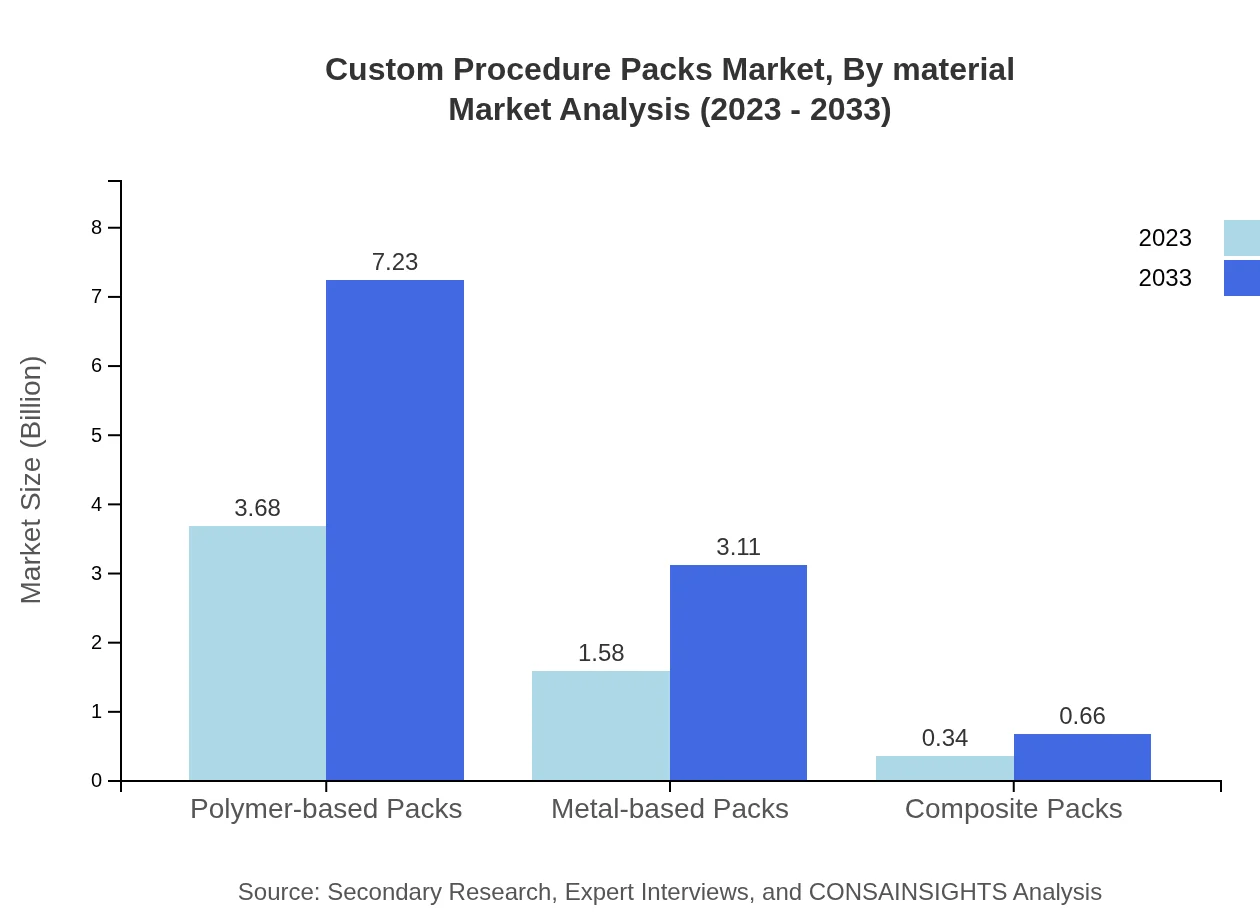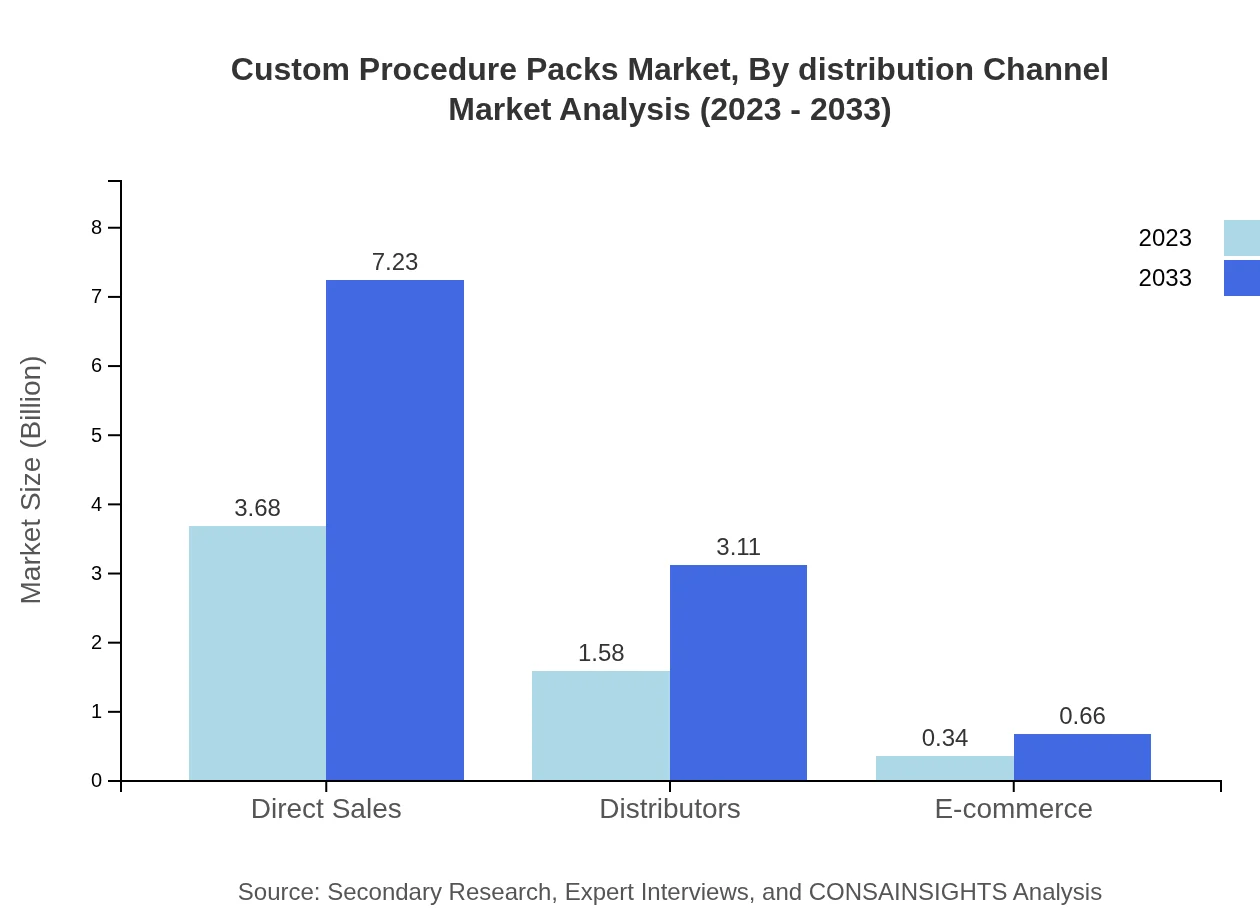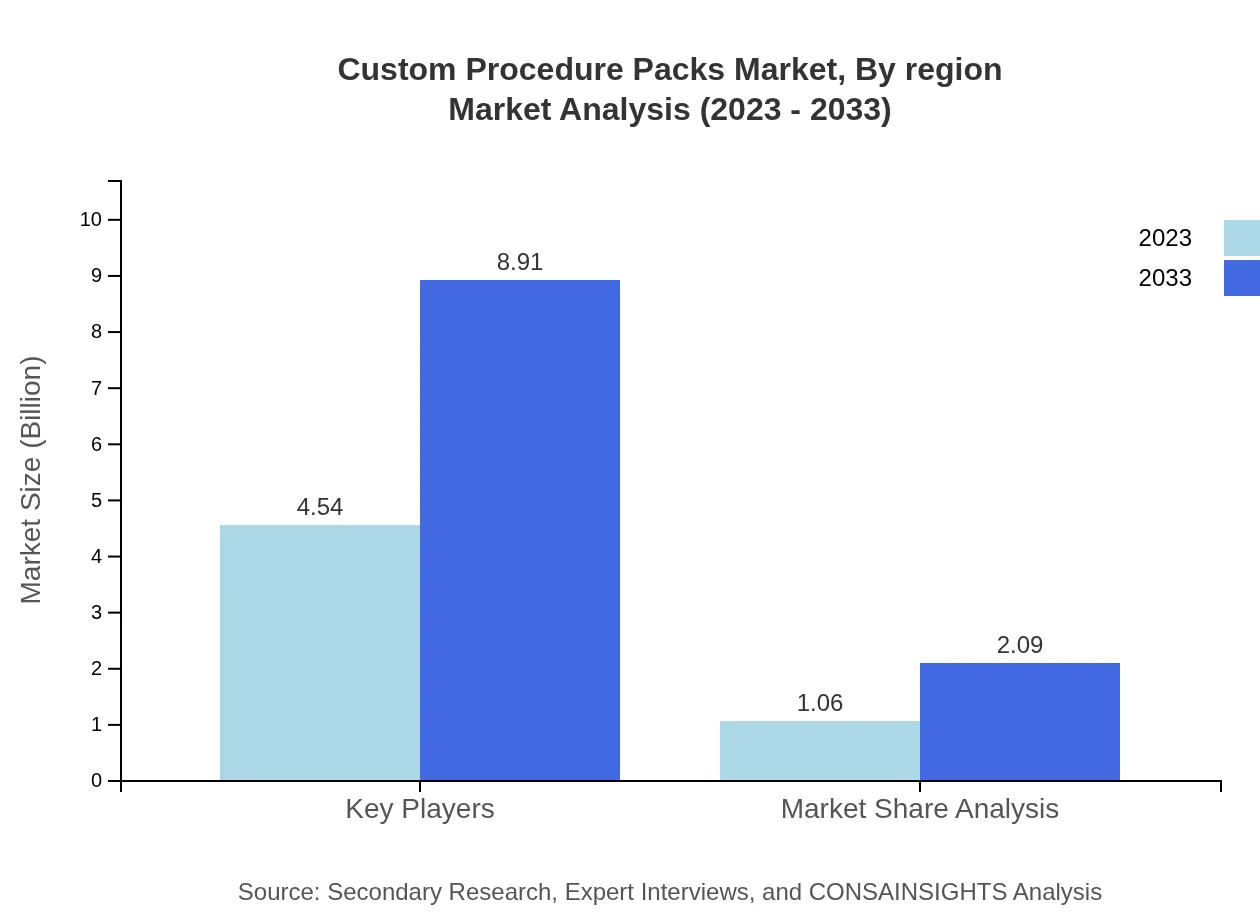Custom Procedure Packs Market Report
Published Date: 31 January 2026 | Report Code: custom-procedure-packs
Custom Procedure Packs Market Size, Share, Industry Trends and Forecast to 2033
This market report provides comprehensive insights into the Custom Procedure Packs industry, covering market size, segmentation, regional performance, and future trends from 2023 to 2033. It aims to equip stakeholders with the necessary data for informed decision-making.
| Metric | Value |
|---|---|
| Study Period | 2023 - 2033 |
| 2023 Market Size | $5.60 Billion |
| CAGR (2023-2033) | 6.8% |
| 2033 Market Size | $11.01 Billion |
| Top Companies | Medline Industries, Inc., Cardinal Health, Inc., B. Braun Melsungen AG |
| Last Modified Date | 31 January 2026 |
Custom Procedure Packs Market Overview
Customize Custom Procedure Packs Market Report market research report
- ✔ Get in-depth analysis of Custom Procedure Packs market size, growth, and forecasts.
- ✔ Understand Custom Procedure Packs's regional dynamics and industry-specific trends.
- ✔ Identify potential applications, end-user demand, and growth segments in Custom Procedure Packs
What is the Market Size & CAGR of Custom Procedure Packs market in 2023?
Custom Procedure Packs Industry Analysis
Custom Procedure Packs Market Segmentation and Scope
Tell us your focus area and get a customized research report.
Custom Procedure Packs Market Analysis Report by Region
Europe Custom Procedure Packs Market Report:
The European Custom Procedure Packs market was estimated at $1.47 billion in 2023, with expectations for it to nearly double to $2.89 billion by 2033. Factors driving this growth include stringent regulations favoring quality healthcare, an aging population, and an emphasis on reducing hospital stay lengths through efficient surgical solutions.Asia Pacific Custom Procedure Packs Market Report:
In 2023, the market for Custom Procedure Packs in the Asia-Pacific region was valued at approximately $1.23 billion. By 2033, this is expected to grow to about $2.42 billion, achieving a CAGR of around 7.2%. Growth in this region is propelled by increasing healthcare expenditure, a growing elderly population, and rising awareness about the benefits of customized healthcare solutions.North America Custom Procedure Packs Market Report:
North America represents a robust market for Custom Procedure Packs, valued at $2.04 billion in 2023 and projected to reach $4.02 billion by 2033. The region's dominance is attributed to advanced healthcare facilities, high surgical volume, and the presence of key industry players focused on product innovation.South America Custom Procedure Packs Market Report:
The South American market for Custom Procedure Packs was valued at $0.30 billion in 2023, with projections suggesting it will reach $0.58 billion by 2033. The region faces challenges such as economic volatility, but the shift towards modern healthcare practices and improvements in the healthcare infrastructure are expected to drive growth.Middle East & Africa Custom Procedure Packs Market Report:
In the Middle East and Africa, the Custom Procedure Packs market was valued at $0.56 billion in 2023, with forecasts indicating growth to $1.10 billion by 2033. The region is witnessing improvements in healthcare infrastructure and increasing public and private investments, offering significant growth opportunities.Tell us your focus area and get a customized research report.
Custom Procedure Packs Market Analysis By Custom Procedure Type
The analysis indicates that surgical procedures account for the largest share of the market, with a size of $3.68 billion in 2023 and projected growth to $7.23 billion by 2033. Diagnostic procedures follow, expected to grow from $1.58 billion to $3.11 billion during the same period.
Custom Procedure Packs Market Analysis By End User
Hospitals remain the primary end-users, holding 65.71% market share in 2023 with a projected increase to 65.71% by 2033, while ambulatory surgical centers and clinics represent growing segments, with market sizes expanding significantly within the forecast period.
Custom Procedure Packs Market Analysis By Material
Polymer-based packs dominate the market with a size of $3.68 billion in 2023 and expected growth to $7.23 billion by 2033. Metal-based and composite packs also contribute significantly but with smaller market shares.
Custom Procedure Packs Market Analysis By Distribution Channel
Direct sales are the dominant channel, representing a size of $3.68 billion in 2023 and projected to double to $7.23 billion by 2033. Distributors and e-commerce platforms are also emerging as important distribution avenues.
Custom Procedure Packs Market Analysis By Region
The analysis of different regions showcases North America as the largest market segment, while growth in Asia Pacific and Europe signals an expanding opportunity landscape for manufacturers and suppliers.
Custom Procedure Packs Market Trends and Future Forecast
Tell us your focus area and get a customized research report.
Global Market Leaders and Top Companies in Custom Procedure Packs Industry
Medline Industries, Inc.:
A prominent player in the healthcare supply chain, providing an extensive range of custom procedure packs tailored to meet various surgical requirements, leveraging technology and innovation.Cardinal Health, Inc.:
A leading provider of specialized medical supplies, offering a robust portfolio of custom surgical packs designed to enhance procedural efficiency and ensure compliance.B. Braun Melsungen AG:
Known for high-quality medical products, B. Braun offers innovative custom procedure packs optimized for safety and effectiveness in various surgical fields.We're grateful to work with incredible clients.









FAQs
What is the market size of custom Procedure Packs?
The custom procedure packs market is valued at $5.6 billion in 2023, with a projected CAGR of 6.8% through 2033. This growth reflects the increasing demand across healthcare facilities for efficient and tailored procedural solutions.
What are the key market players or companies in this custom Procedure Packs industry?
Key players in the custom procedure packs market include major medical supply manufacturers and distributors leading in innovation. Their influence drives market dynamics and shapes competitive strategies, contributing significantly to the market's growth and expansion over the forecast period.
What are the primary factors driving the growth in the custom procedure packs industry?
Growth in the custom procedure packs market is driven by advancements in medical technology, increasing surgical procedures, and a rising demand for personalized healthcare solutions. Moreover, efficiency in hospital logistics and inventory management enhances market prospects.
Which region is the fastest Growing in the custom Procedure Packs?
The North American region is the fastest-growing market for custom procedure packs, expected to grow from $2.04 billion in 2023 to $4.02 billion in 2033. Europe and Asia Pacific also show substantial growth opportunities, reflecting regional healthcare advancements.
Does ConsaInsights provide customized market report data for the custom Procedure Packs industry?
Yes, ConsaInsights offers customized market reports tailored to specific client needs within the custom procedure packs industry. These reports include detailed analyses that cater to unique market segments, geographic areas, and specific trends.
What deliverables can I expect from this custom Procedure Packs market research project?
Deliverables from the custom procedure packs market research project include comprehensive reports, market segmentation analysis, growth forecasts, competitor profiling, and actionable insights that aid strategic decision-making for stakeholders in the industry.
What are the market trends of custom Procedure Packs?
Current market trends for custom procedure packs include a shift towards eco-friendly packaging solutions, increased integration of technology in pack management, and a growing preference for specialized packs in various surgical and diagnostic procedures.

